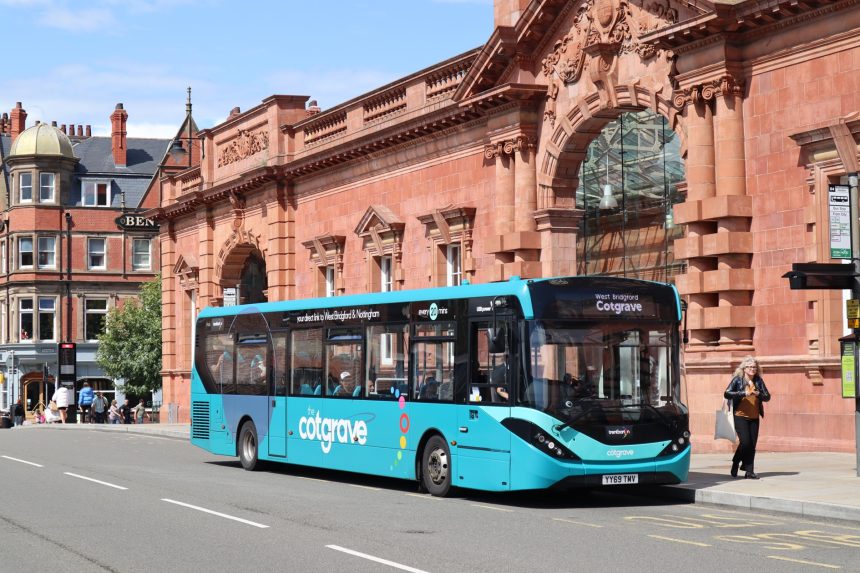Funding for better infrastructure and improved bus services generates at least £4.55 for each pound invested, according to newly published research commissioned by the Confederation of Passenger Transport.
At a panel discussion in Derby today attended by local buses minister Simon Lightwood, CPT will highlight the massive value of local bus services to the British economy.
The figures provided by KPMG indicate that bus operators directly employ 105,000 individuals, while the supply chain supports a further 53,000 jobs, all of which injects £11 billion per year into the economy.
Meanwhile, with £1 in every £10 spent on the High Street coming from bus passengers, the retail economy is boosted by £40 billion per year, the report claims.
Bus commuters earn £72 billion a year and pay taxes of £15 billon, it adds.
In terms of other benefits derived from bus, the research claims it provides access to jobs, education and training worth £8.7 billion, health benefits worth £2.8 billion, support for volunteer work of £1 billion, and a reduction in congestion worth £600 million per year.
Mr Lightwood says: “We know how important buses are to communities as an affordable, green travel choice which help grow our economy and provide access to jobs too.
“Our Buses Bill will help local councils transform their bus networks to deliver better value for money and more reliable services, for passengers.”
The publication of CPT’s research comes as the government warns warns of a “painful” Budget in October and mainstream media reports that the £2 bus fare cap scheme in England will not be extended beyond the scheduled in December.
The industry will thus hope the research highlights the value for money represented by investment in bus services.
CPT Chief Executive Graham Vidler says: “This new research shows the tremendous economic contribution driven by the 100,000 people who work in the bus sector, the 50,000 people working in our supply chain, and the millions of people who use buses every day.
“It highlights how buses support every aspect of our lives, boosting local economies, connecting communities, improving health, and protecting our environment.
“It also shows that investing in better bus services is exceptional value-for-money and offers a speedy, flexible way to support green growth across the whole country.”
The report also breaks down – by region and by combined authority – the economic impact of buses for each area of England.
Also attending is Claire Ward, Mayor of the East Midlands, who adds: “The launch of this new report by CPT is both timely and vital, highlighting the essential role that buses play in driving the economic and social vibrancy of our region.
“It’s particularly encouraging to see Nottingham recognised for its high level of bus sector employment and the innovative practices of our local operators, like the Skylink service to East Midlands Airport and the excellent work by Trentbarton and Nottingham City Transport.
“These examples underscore the critical importance of buses in connecting our communities, especially in rural areas where they serve as a lifeline for so many.”



























